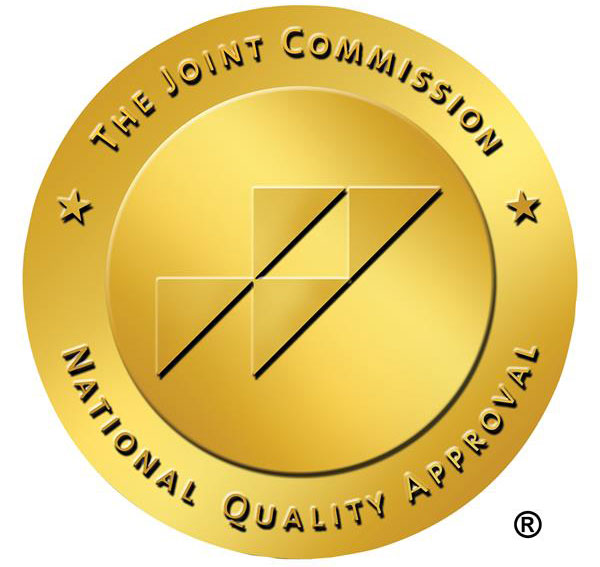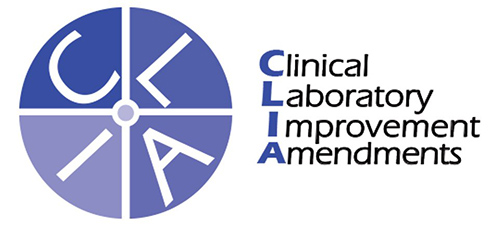Meet the DermTech Melanoma Test®
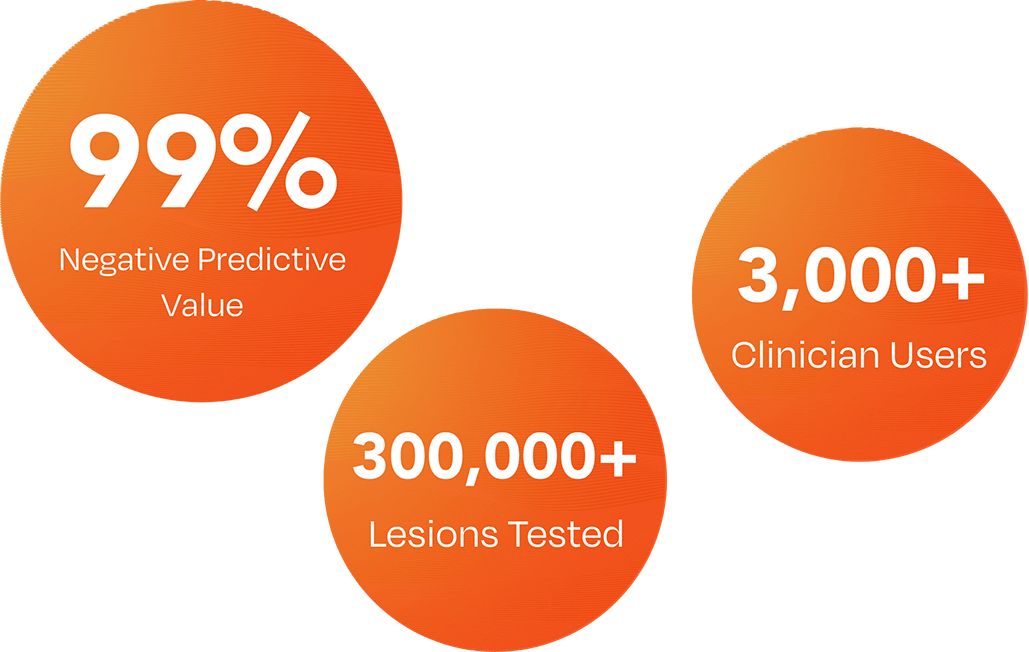
Trusted by over 3,000 dermatology clinicians.
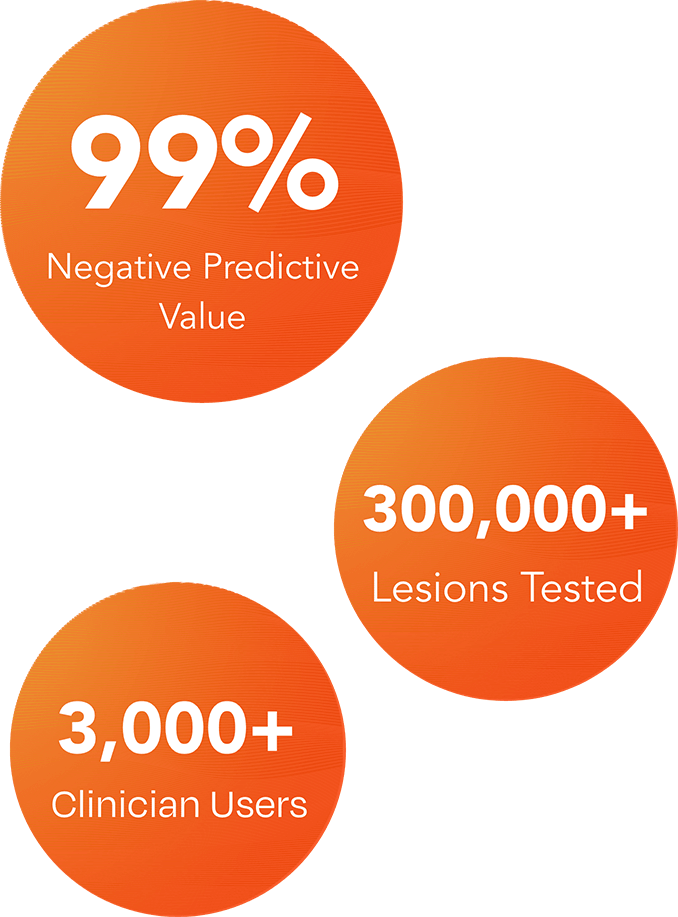
The DermTech Melanoma Test® is a non-invasive genomic test utilizing DermTech Smart Stickers® to assess equivocal melanocytic lesions meeting one or more of the ABCDE criteria. It detects genomic markers associated with melanoma to distinguish benign from higher risk lesions.1
The DermTech Melanoma Test has a 99% negative predictive value (NPV), meaning that with a negative test result, there is a 99% probability that the lesion is not melanoma.
Harnessing Precision Genomics in Dermatology
Certain genomic abnormalities precede morphologic changes.2,3,4
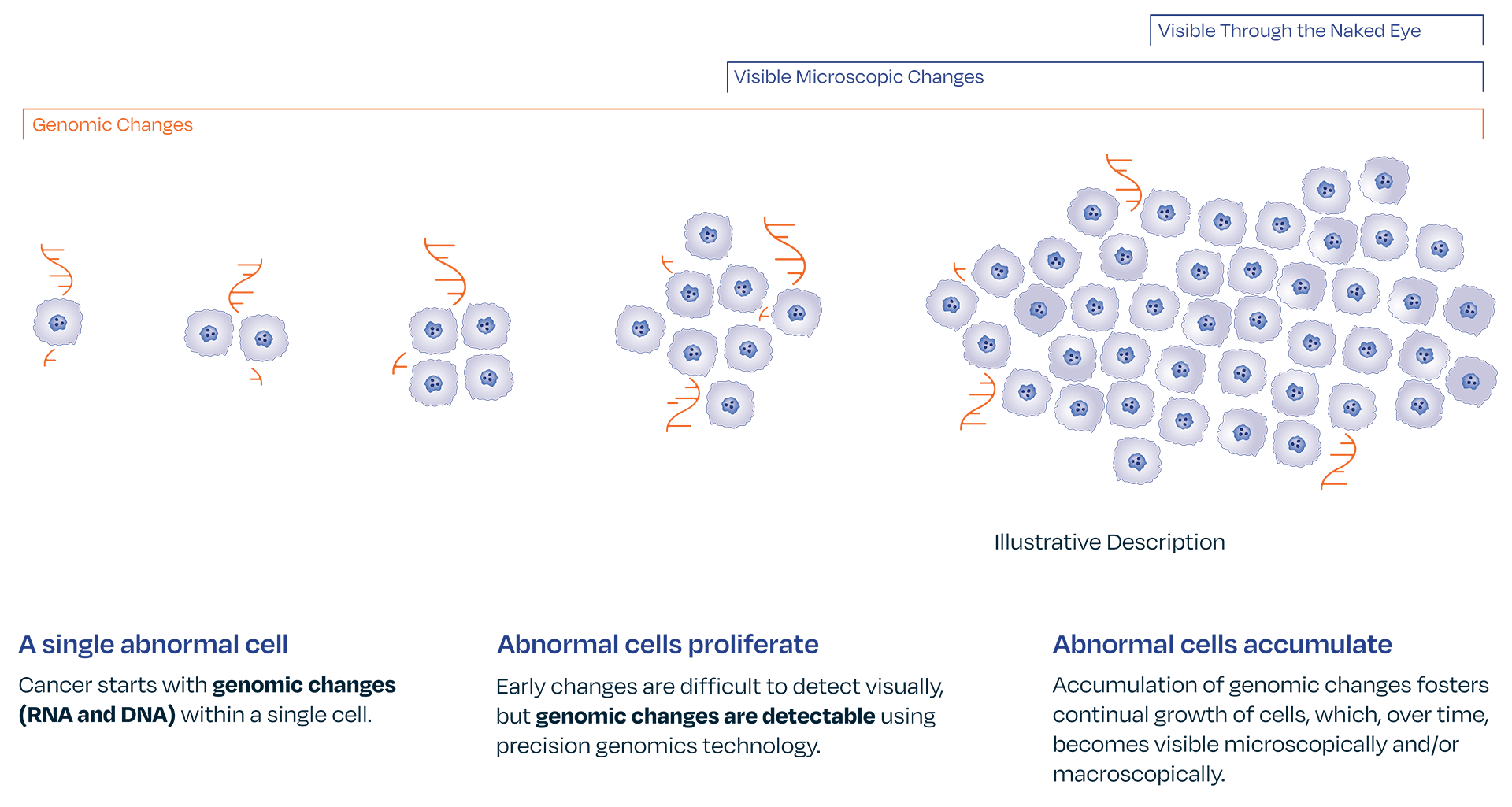

Genomic changes drive disease progression. The absence of gene expression by optimized melanoma associated genomic markers LINC00518 and PRAME can give a provider confidence in ruling out melanoma. The DermTech Melanoma Test’s has a 99% negative predictive value, meaning there is a 99% probability that a negative lesion is not melanoma.
The innovative DermTech 2.0 Lab is CLIA certified, JCO accredited, and licensed by the New York State Department of Health.
Adopt the DermTech Melanoma Test into your practice today.
References:
1. Gerami P, et al. J Am Acad Dermatol. 2017;76(1):114-120. 2. Malvehy J, et al. Br J Dermatol. 2014;171(5):1099-1107. 3. Skelsey M, et al. SKIN J Cutan Med. 2021;5(5):512-523. 4. Shain AH, et al. Cancer Cell. 2018;34(1):45-55.e4.

